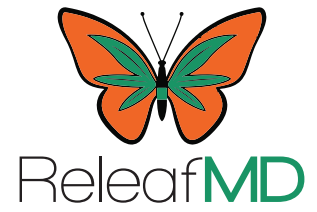Do we really need THC – the most widely recognized component of cannabis?
This is the same compound that produces the “high” in cannabis. It has generated more than its fair share of critics, and many believe that THC has no medicinal value at all.
Yet, science has demonstrated this is far from the case.
THC in conjuction with other cannabinoids has shown to help people deal with mental and physical ailments.
Not to mention many people find THC-rich products – when taken at just the right dosage – to be an effective supplement towards their everyday health.
Just check out these 8 health benefits of THC.
#1.) Provides Pain Relief
Pain relief is one of the top medical benefits of THC, and I’ll tell you why…
More than 1.5 billion people worldwide live with chronic pain. Many of these individuals suffer from neuropathic pain, or nerve-related pain.
Studies show that THC activates pathways in the central nervous system that block pain signals from being sent to the brain.
Even an FDA-approved trial in 2013 confirmed THC’s effectiveness for pain relief. Individuals experiencing neuropathic pain were given low doses of THC (1.29%) in the form of vaporized cannabis. The results?
“A low dose of delta-9-tetrahydrocannabinol provided statistically significant 30% reductions in pain intensity when compared to placebo.”
While clinical research continues to be restricted due to cannabis’s regretful status as a schedule one controlled substance – it is clear that a positive correlation exists between THC and pain relief.
#2.) Eases Nausea & Vomiting
Did you know that a FDA-approved THC pill (Marinol) for treating nausea and vomiting in cancer patients has been around since the 1980s?
In fact, Marinol has been marketed as a pharmaceutical alternative to cannabis.
However, while Marinol does contain delta-9-tetrahydrocannabinol (THC), the compound is both synthetic and isolated. Which means that it pales in comparison to the chemical compounds found in natural, whole-plant cannabis.
Marinol does not include beneficial components such as other cannabinoids, terpenes, and flavonoids.
Interestingly, a study in 1995 revealed that oral doses of THC-8, a cannabinoid like the regular THC but with lower psychotropic effects, were an effective treatment for children suffering from chemotherapy-induced nausea. The only side effects found was slight irritability.
Considering that other nausea medications such as Zofran can lead to side effects like: diarrhea, headache, drowsiness, blurred vision, muscle spasms, rash, fever, and constipation just to name a few.
THC-based therapies are a much safer option.









